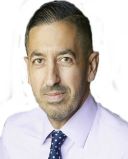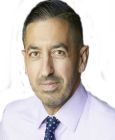Health
Better Health Requires a Rhetoric of Trust and Inclusion
Explore language that supports a healthier, less divided world.
Posted May 1, 2024 Reviewed by Gary Drevitch
In 2017, I wrote an essay, published in The Milbank Quarterly, arguing that the then-new administration would be harmful to Americans’ health for two reasons—by representing disinvestment in the resources that shape health and by sowing a language of division that would rend the fabric of trust that we need to create a healthier world. I was not alone in these concerns, and subsequent years have shown that they were not without cause. In many ways, this period of American history will perhaps inevitably be remembered as a time characterized by enormous public distrust and divisions that are unprecedented in the past century.
For this reason, I have been reflecting more and more about language and how it contributes to healing divides and allowing us to achieve our goals, promoting a healthier world. To support such language, I would like to reflect here on shaping language that can do some good at this moment by embracing a rhetoric of trust and inclusion toward creating a healthier, less divided world.
I begin by crediting a colleague and friend whom I admire very much, Dean Harvey Young, who leads the Boston University College of Fine Arts. In a recent conversation, Harvey used the term “a rhetoric of distrust” and pointed to examples such as the words used to sow conspiracy theories about vaccines and words used to create policies that callously leave many behind through the use of rhetoric that dehumanizes the “other.” I thought this formulation was compelling, distressingly so. Words matter. We have all heard that “sticks and stones can break bones, but words will never hurt me," which is perhaps superficially true, but, on a deeper level, an underestimation of words’ power to shape reality for many. Words are closely linked to ideas, and the ideas we bring into the world are the basis for what the world will become. Do we want a world that is formed by words and ideas that sow hatred and distrust? Are we really OK with the last decade serving as a template for what the rest of the 21st century will look like? Or will we aspire to something better and choose to use words that are worthy of such a vision?
Harvey Young’s remarks pushed me to think about the converse of “a rhetoric of distrust"—that is, a rhetoric of trust and inclusion. What might such a rhetoric look like? How might it promote the work of those who are interested in the health of the public? Reflecting a bit on this and on others who have written on related topics, I think I alight on three criteria for a language of trust that surely we want to cultivate if we are to shape a rhetoric that truly supports progress in pursuit of health.
First, we want language that does not distance. That means never using “us vs. them” language but rather aiming to use language that leans into “us,” reflecting our collective investment in building a better world. There is a line from the novel Cloud Atlas, “All boundaries are conventions, waiting to be transcended. One may transcend any convention if only one can first conceive of doing so.” To conceive of transcending the boundaries that emerge between people and groups, we should embrace a language that no longer encodes division in what we say and how we think. This means taking care to speak, as often as possible, of the group, with no one excluded, reflecting a perspective that helps us to imagine a world no longer characterized by the divides of the moment.
Second, we should use language that centers persons, always representing the individual first rather than characteristics of identity. We should not be in the habit of referring to a person as “that [trait/illness/disability] person,” but rather, we should speak to who they are as individual persons. This can be difficult; as humans, we are, to a large extent, hardwired to process our interactions through the lens of stereotypes. It can be difficult to look past our biases, past the sometimes lazy mental shorthand we use to think about people, to see the full humanity of those around us. But it is necessary that we do so, just as it is necessary that we try to transcend our human tendency toward hate, conflict, and fear of “the other.” We cannot trust people if we do not know them, and we cannot know them if we do not make an effort to see them for who they truly are rather than as a mere bundle of characteristics.
Third, we should use the language of collective responsibility and ownership rather than of individual ownership, so it is not “my team” but “our team,” not “my community” but “our community.” Such phrases can help shape a more inclusive pursuit of health by embedding in the very words we say a sense that we are all "in this together.” I have long argued that public health should be a big-tent movement, appealing to as many people as possible, reflecting the universality of the goal of better health. Such movements are about “we,” not “I.” No single individual can create a healthier world by working alone. Likewise, the work of bridging the divides of this moment is work in which we all can and must take part. By reflecting the collective nature of this enterprise, each word we say can be a step toward overcoming the divisions we have seen.
Can language make a difference? I have long felt it can, both spoken and written. History is replete with examples of when language changed how we think, and, as such, we have a responsibility to think about how to speak well in our space to meet our professional responsibility. As with much else, this is not easy and requires a habit of mind, and we get it wrong regularly (I know I do) but over time, it is not only what we talk about when we talk about health that changes, but also how we talk when we talk about health. When this reflects a rhetoric of trust and inclusiveness, it can be an enormous positive indeed.
A version of this post also appears on Substack.


